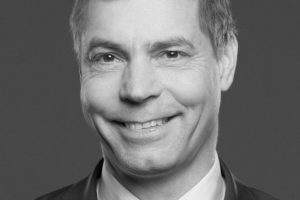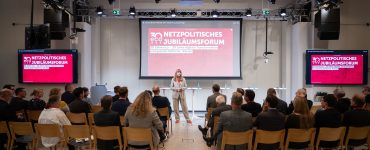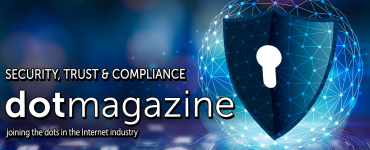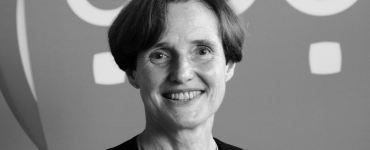At the turn of the year, Michael Frenzel took over at eco as Head of Corporate Communications. Prior to coming to eco, he developed the PR and corporate communications at 1&1 before becoming Head of PR and Chief Editor for the World Hosting Days and, most recently, acted as Head of Communications at Mediakraft Networks. In interview, he talks about his plans at Europe’s largest association of the Internet industry.
Mr Frenzel, when did you first become aware of eco and what was your impression of the Association at the time?
I’ve been involved with the Internet since the early 1990s, when I founded a start-up with school friends. My initial contact with eco goes back to my time with 1&1 in the late 1990s, when the Association was still based in an apartment building in Cologne-Worringen. Right from the outset, I found eco to be exciting. This was certainly due in no small part to the great engagement of its founder and driving force, Harald A. Summa and his colleagues, as well as luminaries such as Professor Michael Rotert, who I already knew at that time.
And then it really started to hot up when Ursula von der Leyen wanted to introduce Internet blocking as part of the 2009 German federal election campaign. In this phase eco, led by Professor Rotert, played a decisive role in protecting the free democratic order. Parts of the industry had already given up this fight so as not to mess with the powers that be. I was really impressed by eco’s steadfastness.
Based on your previous professional activity – among others, for 1&1 and Mediakraft – you have a wealth of experience when it comes to the themes of PR and the Internet. What are your plans for communication at eco?
I am particularly enthusiastic about the idea of being able to achieve something for our industry – the many great start-ups, and also those traditional companies that are discovering the opportunities of the Internet. For me, the focus will be on highlighting the opportunities that Internet technology offers for economic and social progress.
There are already more than enough voices out there ringing alarm bells and spreading skepticism about progress or fear of digital change. However, this does not help us if we want to master the digital transformation.
Where do you think the Association should have an even stronger media presence?
I find the presence it already has to be excellent. In my opinion, eco is the association that most clearly represents the interests of business and consumers for a free, self-determined Internet. Perhaps this is due to the fact that the Association not only articulates the industry interests of some very large companies, but also that it works on behalf of over 1,000 very diverse companies, from small Internet developers to international corporations. Everyone has potentially the same voice here.
Do you believe that the role of the Internet industry is still under-estimated within the overall economy?
Yes, you’ve said it. Especially in politics, for example, many are still fixated on classic media and its defensive battle against the Internet. Digital transformation is certainly a huge challenge for many traditional business models. However, these challenges won’t be overcome by donning knight’s armor and fighting windmills.
Instead of constantly trying to rein the Internet in, we should place better trust in the self-regulation of the industry. How do citizens and the economy benefit from constructs such as the Network Enforcement Act (NetzDG), the Access Impediment Act or others, whose names already reveal that their intent is the problem?
How intensively do you use the Internet yourself – or to put it another way: What does a day without the Internet look like for you personally?
A day without the Internet doesn’t really happen anymore. Maybe on holiday on one of the Frisian islands or in the mountains, if I can really unwind. Then I might just manage to hold out for a day without an email check. But which mobility solution or which usable weather forecast can function without the Internet today? So, in this respect, a day without the Internet has become highly unlikely.




